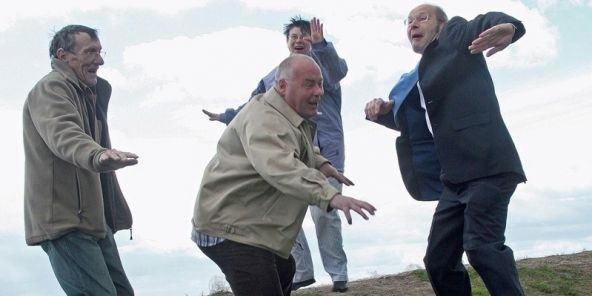The prospect of Angus decision-makers ”getting down with the kids” has been discussed at a council meeting.
Members of the education committee in Forfar discussed giving young people more ”voice and influence,” including the expanded use of social media.
Education director Neil Logue prepared a report on previous efforts to get teenagers involved, after two recent inspections highlighted scope to widen engagement.
Mr Logue added: ”Recent council developments make it possible to utilise social media as vehicles for communicating and engaging with young people. Consultations with young people and staff increasingly confirm that this is the way in which many young people wish to engage with and be engaged by councils.”
Education committee convener Sheena Welsh said: ”We have proposals in hand to increase the engagement with our youth, and ensure that local children’s groups have direct representation.”
With the prospect of the voting age being lowered, Mrs Welsh said the discussion around the table showed the county’s councillors are ”very keen” to engage with younger people.
Forfar councillor Glennis Middleton said she believed there is greater scope for inviting young people into council processes. She said the group wanted a formal youth congress that would be able to call a meeting with elected members on matters of concern.
”We should be making ourselves available maybe not to agree to everything that young people ask for but we should be having the debate,” she said.
Arbroath member Ewan Smith said: ”To coin a phrase, I believe we should be getting down with the kids and making them part of the discussion.”
Continued…
Forfar councillor Lynne Devine said it would be helpful to have youth groups make organised representations to committees, adding: ”There are thriving pupil councils which meet regularly, but it seems a shame there isn’t anything following on from that.”
Mr Logue said it would be feasible to open up committee meetings to youth involvement.
He said: ”It would maybe involve councillors going and meeting young people on their fora. It’s also feasible to invite them to decision-making meetings, bringing forward their concerns and anxieties about such things as education provision.
”It would be entirely possible to build on the meagre record so far to make representations to this committee.”
Arbroath councillor Martyn Geddes agreed, adding: ”Getting members of each school together on a forum would bring wider issues to light.”
Montrose member David May said he had acted in a non-political capacity in meetings at the town’s secondary school, and added: ”The important thing is to allow the questions to be asked. We should have a systematic approach, which I think is what the director is alluding to.”
Kirriemuir councillor Ronnie Proctor said two pupils often sit on the local community council and that arrangement has led to one former pupil staying on.
He added that the Curriculum for Excellence’s ”citizenship packages” tie directly in to the discussion of engagement.
Councillor Bill Duff echoed the importance of complying with the new curriculum, but added that social networking might prove a better tool than inviting young people to ”stuffy” committee meetings.
Mr Logue’s report included the prospect of an internet radio station ”engaging young people in debate and providing direct access to decision-makers,” a Big Lottery application being worked on to buy film-making resources, and a Young Scot-aligned project that helps young people get into journalism.
